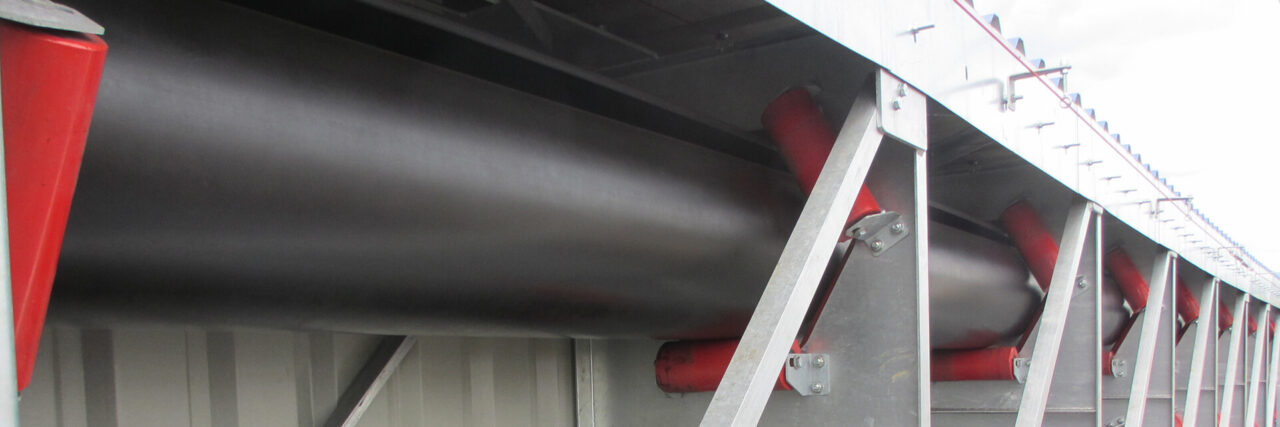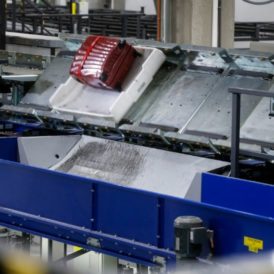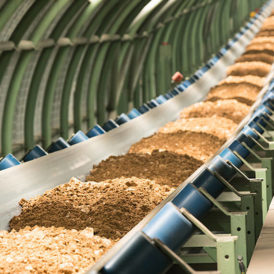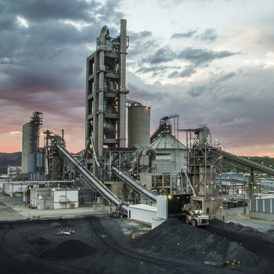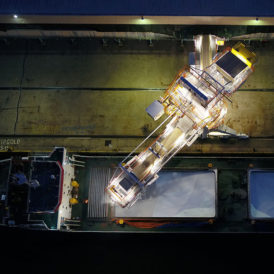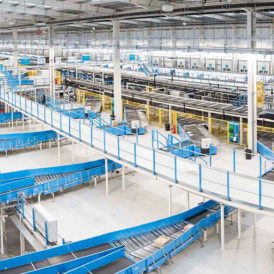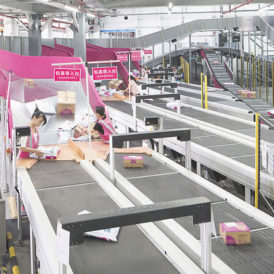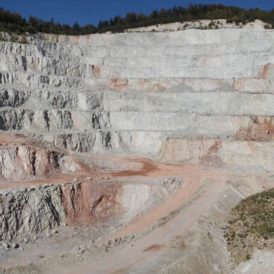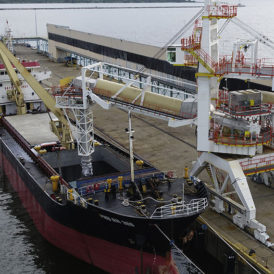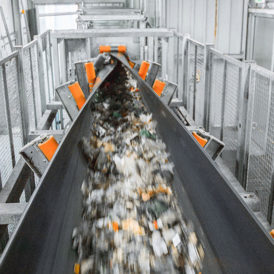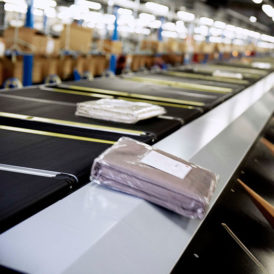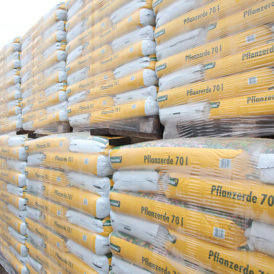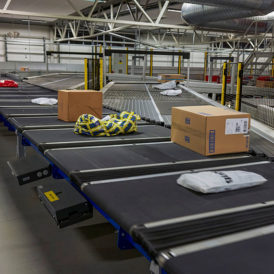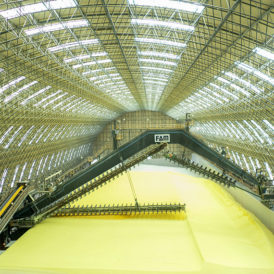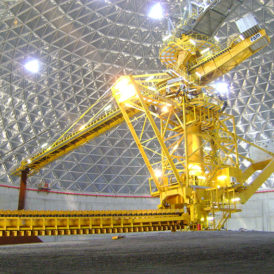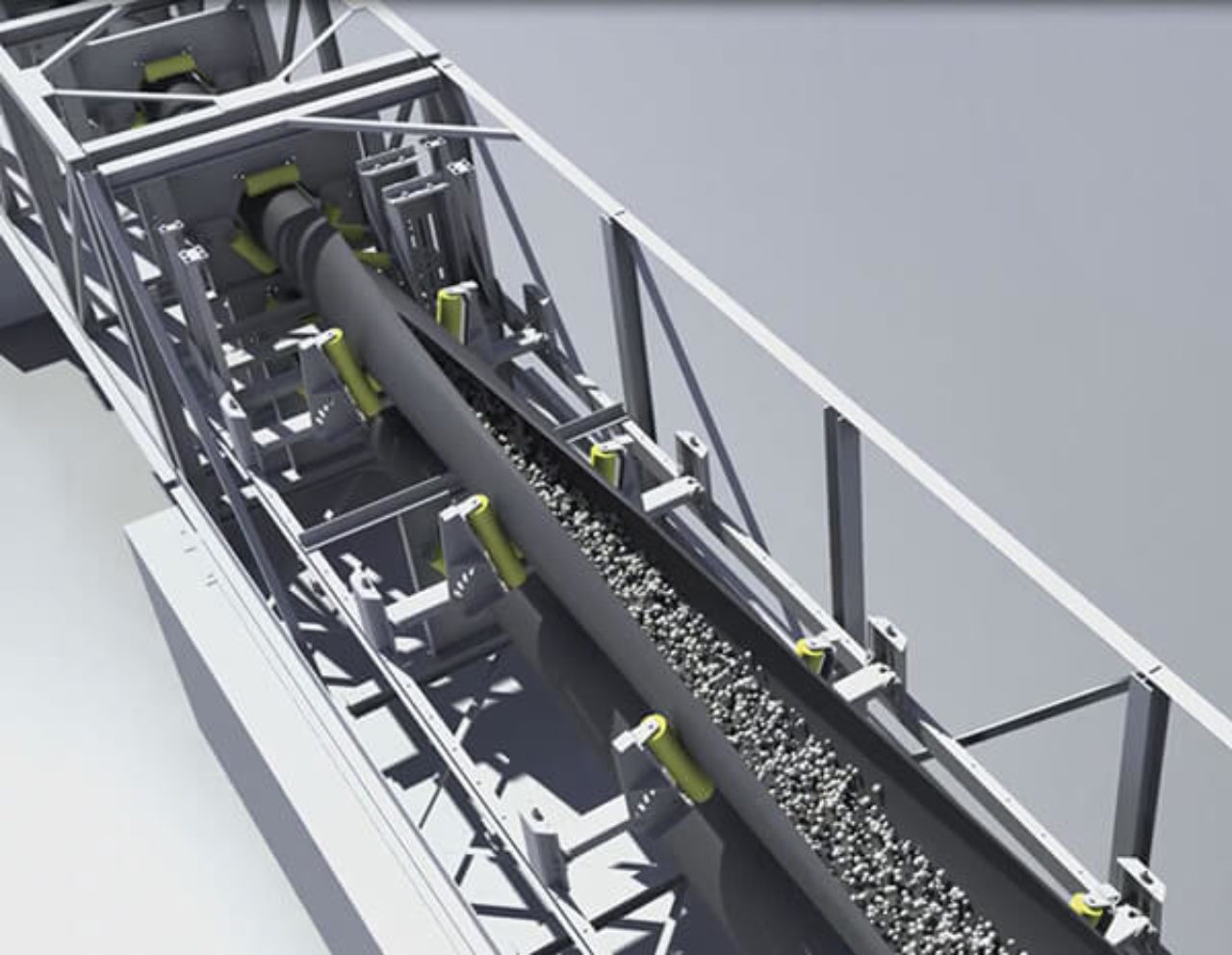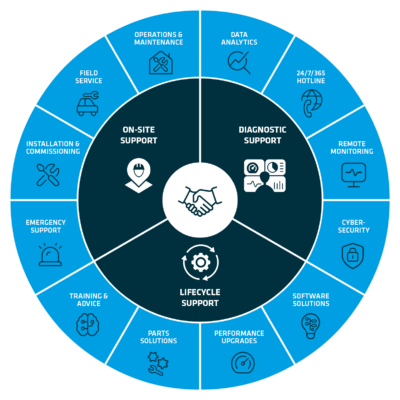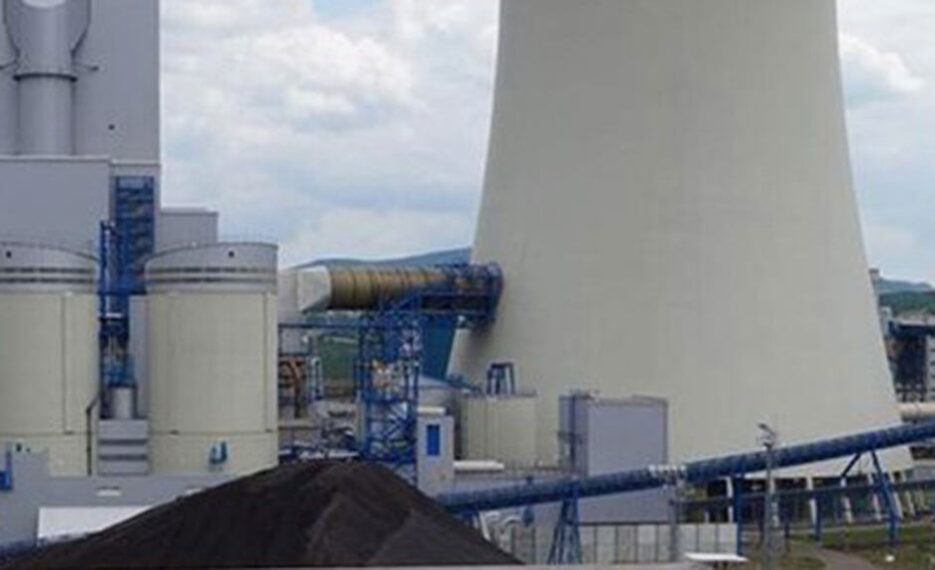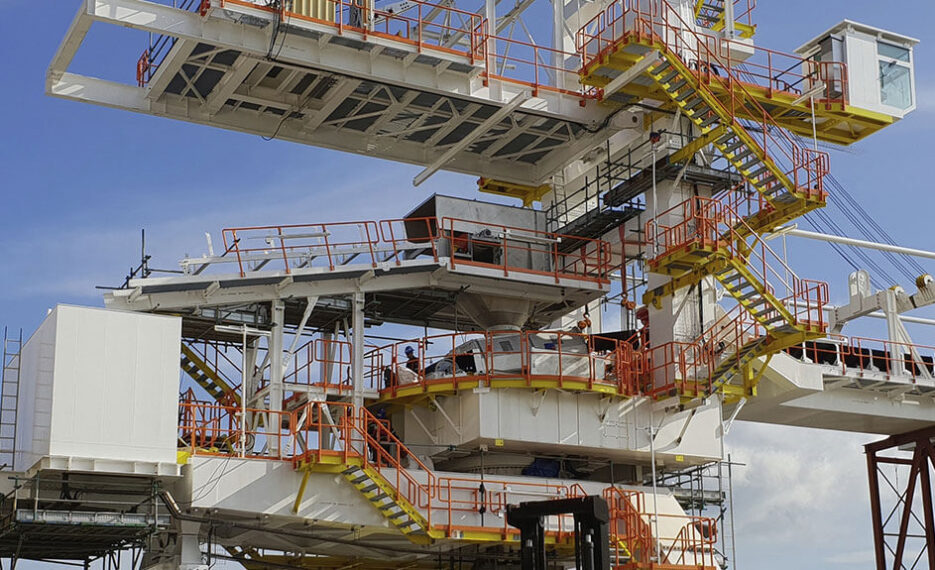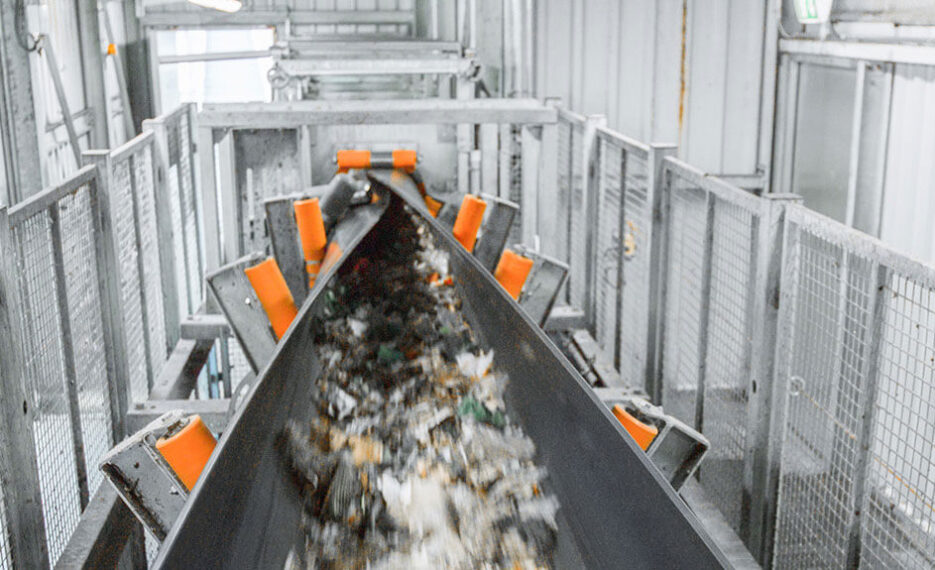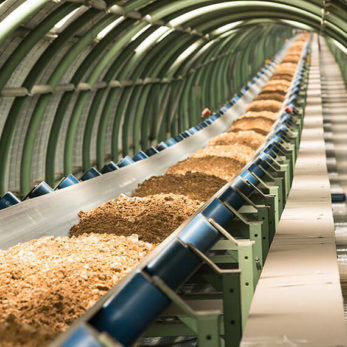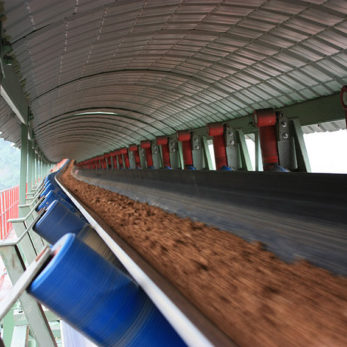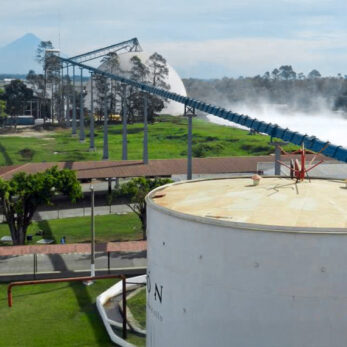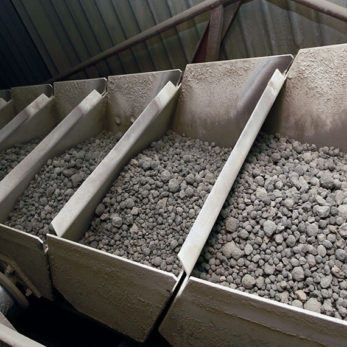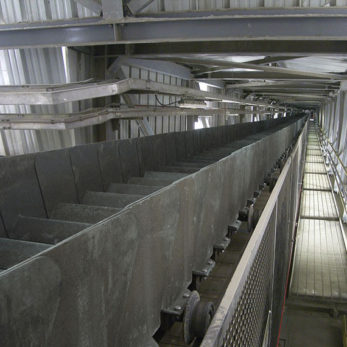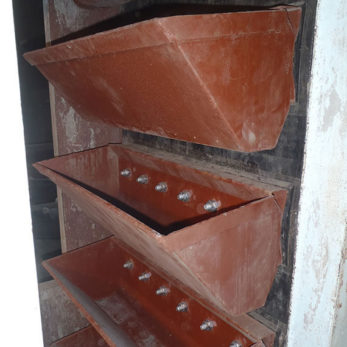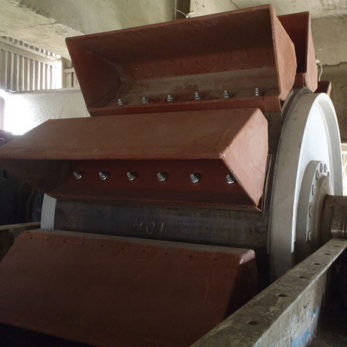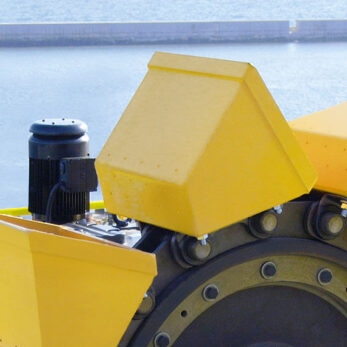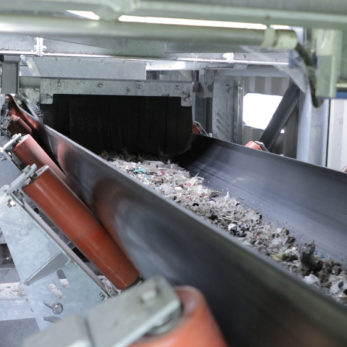Pipe Conveyor Belt Quality and Band Construction
Your individual needs, the conveying capacity and length of the pipe conveyor determine the belt quality. Does your case require normal or heat and tear-resistant rubber? Does a textile weave offer enough durability or are reinforcing steel cables required? Your requirements determine the construction of the belt. For safety reasons, depending on the type of material, the recommended capacity for our pipes is usually 75% of the pipe’s diameter. That way there is a little extra room to take on additional weight.
By using special rollers, low-noise bearings and the correct conveying speed our pipe conveyor system actively reduces noise emissions, this ensures that the people living near the conveying line are not disturbed by noise. An added advantage is the improved day-to-day working environment of our workers.
From Planning to Operation
Whether short distances for alternative fuels, cement, or clinker or kilometre-long transport of ores, limestone and gravel – our technical expertise will help ensure proper planning at the beginning of your project. Our knowledge of horizontal, inclined and ascending routing and proprietary calculation programs are what make the realisation of big projects possible in the first place. With extensive feasibility studies and elaborate simulations of loading conditions and throughput rates, we develop the right system solution for you with the appropriate belt width and drive power for conveying your goods.
